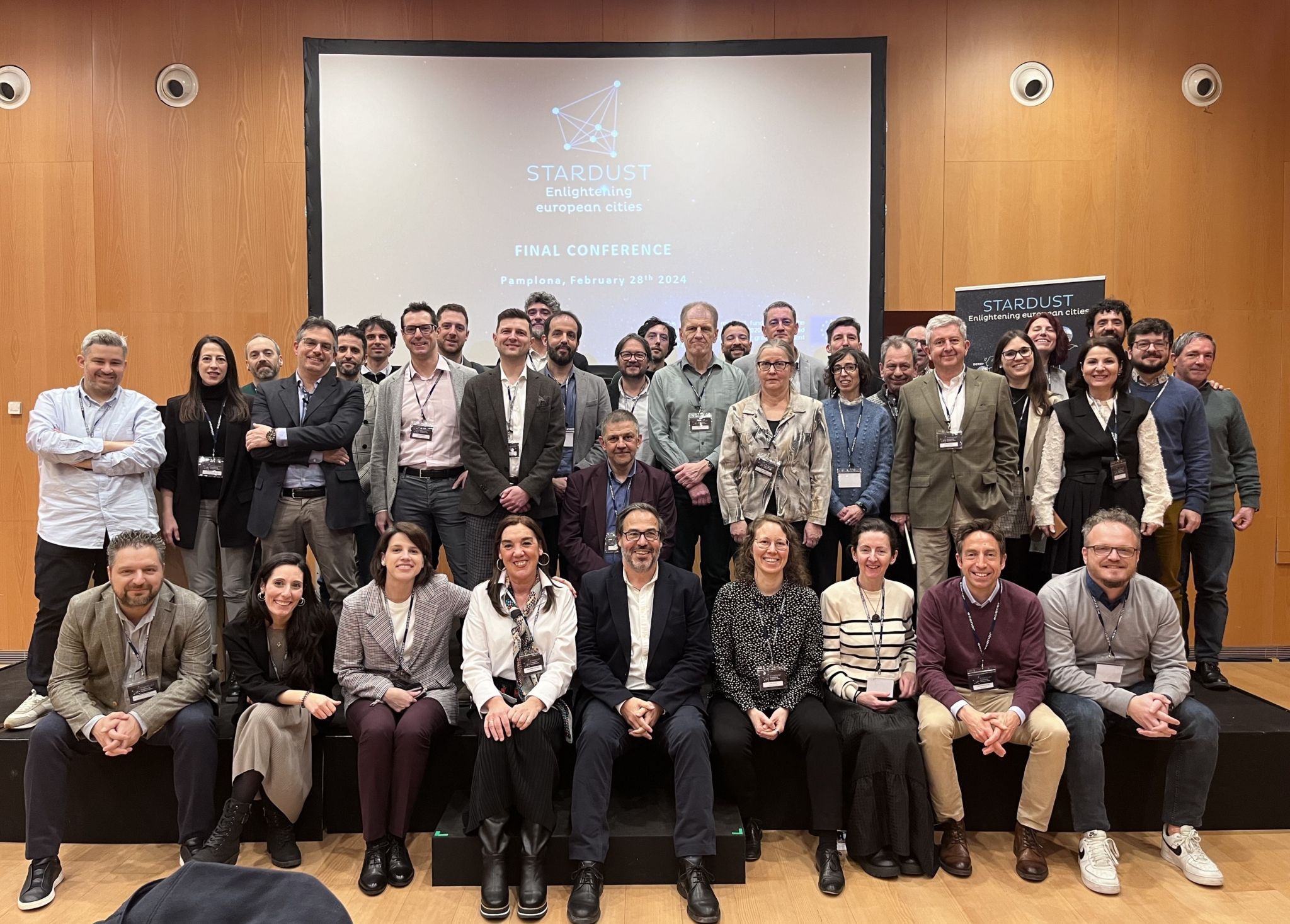The Pamplona City Council will install a photovoltaic roof generator in the building of the Municipal Police. This is a complete modular wooden deck with high quality and energy performance that integrates state-of-the-art PV modules that will provide the building with electrical energy. This is the sixth municipal PV installation of self-consumption in Pamplona and 60% of the wood used to produce it comes from sustainable forestry. The installation of the roof is one of the actions carried out by the Pamplona in the EU-funded project STARDUST. The Local Government Board has recently awarded the contract to carry out this work to Construcciones Leache, S.L.

The roof is a ‘2 in 1’ system (roof plus PV installation) connected to the grid inside the building. It will be supported and fixed on the current roof and will serve as a complement of waterproofing and improvement of thermal insulation, although the system can be used as a sole roof in other constructions. This PV installation comprises 266 solar panels, for a total power of 76 kWp. It has a surface area of about 900m2 for an estimated production of 95 MWh per year, which represents between 10 and 15% of the building’s consumption. The roof will be part of the micro-grid that includes storage batteries (made out of reclyed batteries) and charging points for municipal electric vehicles, as well as regulation equipment connected to the electrical network of the building, all of them part of STARDUST.
Another important milestone of STARDUST in Pamplona is the progress on the local Distric Heating. On the 3rd of October, the Government of Navarra and the public company NASUVINSA, both members of the STARDUST consortium, and ENGIE, the company which has been awarded the work, have presented the characteristics of this biomass-based heating infrastructure, that will start operating in winter 2020. In particular, they explained the importance of urban regeneration to fight climate change and how biomass can be considered a renewable source when it comes to the sustainable management of forests.
This initiative is part of the energy rehabilitation and urban regeneration plans in the Txantrea district. Currently, the heating and domestic hot water are supplied by 8 old, inefficient oil-based small district heating networks, ranging from 200 to 1.200 dwellings. These will be replaced by the new infrastructure, which will makes use of forest biomass as an alternative energy source.


